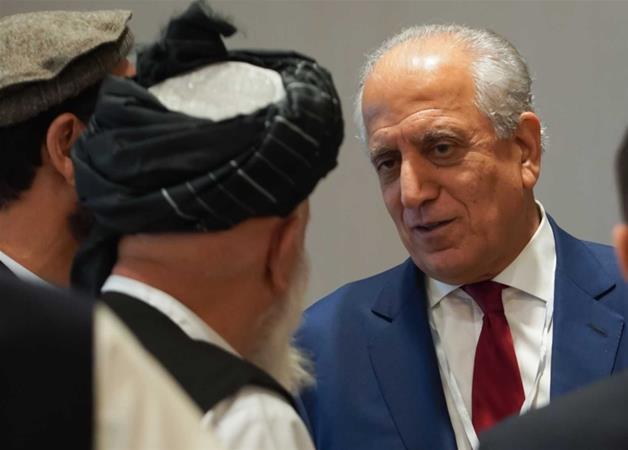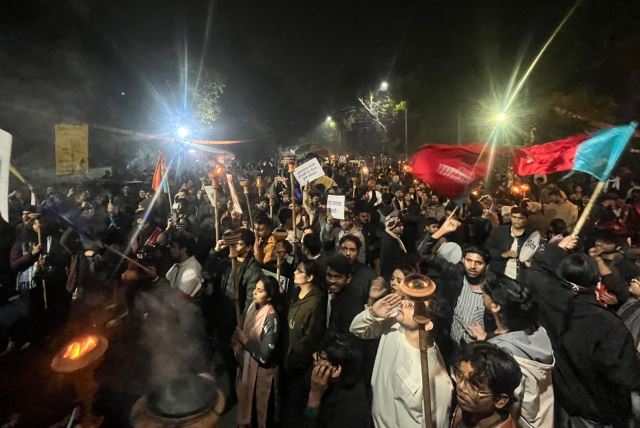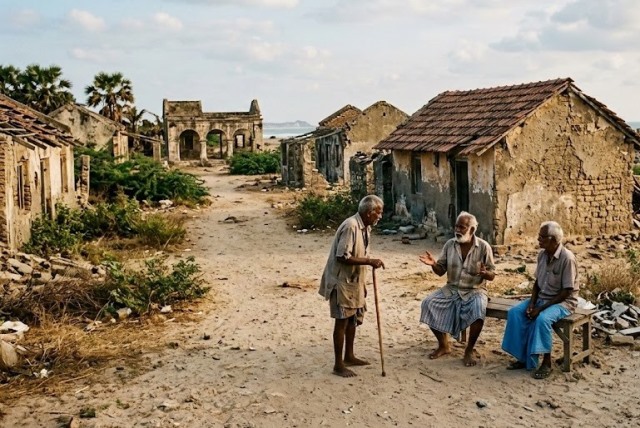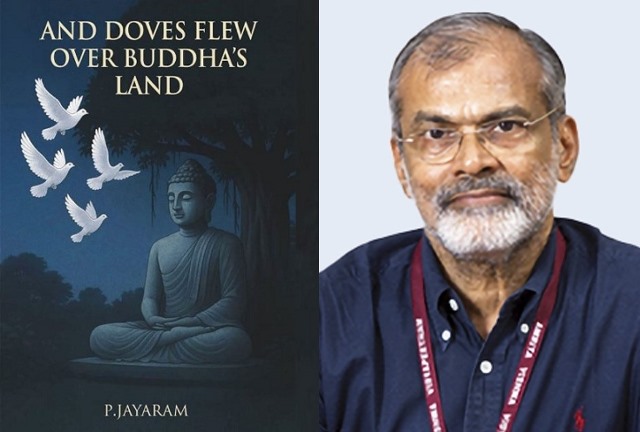
India Must Remain Involved In US-Taliban Peace Talks
Taliban ended 2019 by kindling hopes of a ceasefire ahead of signing a peace deal with the US. But a few days later they went back on their word, perhaps due to internal differences within the group or for unknown strategic considerations. But whether now, or later in the year, a peace deal is likely to be announced, with or without pre conditions like a cessation of hostilities.
The Taliban has said often enough that fighting will stop only after foreign forces are out of Afghanistan. President Donald Trump would be desperate for an agreement considering that US elections are due this November. What the contours would be is not known, but the Taliban will ensure that they get a large piece of the pie in any political settlement worked out between the Afghan parties.
Also Read: Has Trump Plan Edged India Out Of Afghanistan?
India needs to keep this is mind, and prepare for an eventuality when the Taliban becomes an important part of the Afghan political scene. The good news for India is that Afghanistan has changed drastically since the time the Taliban was in power till 2001. People are no longer in the mood to be cowed down and sacrifice the gains made in the Hamid Karzai and Ashraf Ghani years. Womens’ rights have become pivotal as well as democratic principles. Ashraf Ghani’s victory in the presidential elections bears witness to this positive narrative. People came out to exercise their democratic rights during the parliamentary elections in 2018 despite the boycott called and the blood-letting by the Taliban. The same is true of the 2019 presidential polls. Luckily for Ashraf Ghani and by extension India, the President’s decisive victory will make his position stronger during the intra Afghan talks.
India had sent two of its former diplomats to Moscow in 2018 when Russia organized a meeting with representatives of the Taliban. Realising that all regional powers were engaging with the Taliban, and not wanting to be left as a by stander as the peace process seemed to gather momentum, Delhi sent retired diplomats to the meeting. They were tagged as “non-officials’’ keeping in mind India’s reservations about engaging with the Taliban. Both former diplomats later said that they did not get an opportunity to exchange pleasantries with the Taliban representatives at the meet. They just observed from a corner table of the hall. Perhaps that’s true. But it is unlikely that Indians have not been in contact with lower functionaries of the Taliban in Afghanistan. Sure there has been no interaction at the higher levels. By sending two “non-officials’’ to the Moscow meet, New Delhi signaled that it was ready to do business with the Taliban in future.
It is also unlikely that if the Taliban becomes a part of the ruling establishment in Afghanistan, India would be asked to shut down its embassy as happened earlier.
What is evident from the US-Taliban negotiations is that the latter is now perhaps a tad more pragmatic than earlier when Mullah Omar headed the movement. By interacting with the US as well as China, Russia and Iran, besides the Gulf nations, it is gradually coming to grips with the dynamics of pragmatic power play. The Taliban today though still staunchly wedded to its Islamic ideology is likely to be more practical in governance. The people of Afghanistan, especially in Kabul and other urban centres will not tolerate banning women’s education, a stop to all kinds of music, public beheadings and destruction of Bamiyan Buddha carvings is unlikely to happen. They may all be manifest in the countryside far away from international focus.
The final political settlement will see the Taliban emerge as the main power centre, and be in a position to dictate terms. It is well known that Pakistan, already anxious about India spreading its wings across Afghanistan will certainly try its best through the Taliban to clip Delhi’s wings. Islamabad will use its influence to try to close down some of the consulates. Besides the main mission on Kabul, Indian consulates are in Kandahar, Mazar-e-sharif, Jalalabad and Herat.
The consulates have been a sore point with the Pakistani establishment and this will certainly be part of the agenda. How much dictation the Taliban will take from Pakistan is also a question. The fiercely independent Afghans are loath to take dictation from others.The Taliban are also aware that ordinary Afghans are happy with India’s developmental work, which have touched their lives.
Successive Indian governments, starting from the Vajpyee era, through the two terms of Manmohan Singh’s term and now the Narendra Modi government had wisely focused on people to people contacts in Afghanistan. Luckily Pakistan’s opposition to Indian boots on the ground has paid off for New Delhi. By its non-aggressive stance, India has been able to win the hearts and minds of local Afghans. The Taliban are aware of this. In fact last year a Taliban spokesman had said that India can continue with its development works. Whether the leadership of the Taliban are of the same view or it was an off the cuff remark is difficult to gauge.
Delhi’s stand on Afghanistan has so far paid off. It has echoed the elected governments stand and marked out the red lines—that the hard earned democratic values cannot be sacrificed. India’s option is to continue to support the democratic forces in Afghanistan and concentrate as it has always done on development. At the same time whenever possible to be in touch with the Taliban. Not talking to the Taliban should never be an option as they are a part of Afghan society. Keeping in touch with all sections, supporting the democratic government of Ashraf Ghani for now, and working for the people would finally pay dividends.
No one knows when a political solution is worked out, but Delhi will know that Islamabad or rather Rawalpindi will try to use its influence to keep India out. How finally all this pans out is not known, but Delhi needs to keep its ears to the ground.



